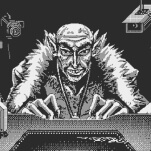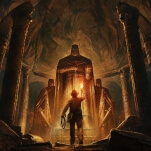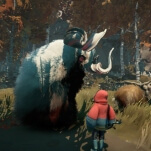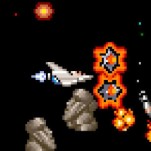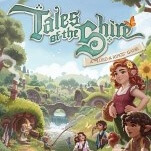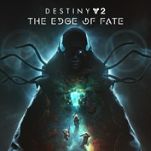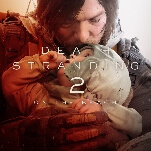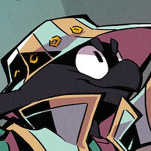Garrett Martin’s 10 Best Videogames of 2018

Normally intros to lists like this try to summarize a whole year in a few sentences, or gin up some kind of overarching theme or meaning through a few stray observations and coincidences. I can’t think of anything more boring, so that’s out. I’m not going to wax poetic (or philosophic) about what it all means, because you’re smart enough to know the score and I respect you enough to not peddle my own nonsense that insistently. 2018 was a year, it had games, some of them were good: that’s all we need to agree on.
You might remember that we ran our all-encompassing list of the best games of the year earlier this month. We don’t break down the process behind that list, but it factors in every review we ran during the course of the year, along with the personal preferences of our games editors, who are myself and Holly Green. There’s no hard and fast equation, or anything, and as the guy who assembles the final piece I pretty much have total discretion in how the finished lineup looks. Still, it doesn’t exactly reflect my own tastes and opinions. You’ll see a lot of overlap, and you’ll also see games that our writers strongly vouched for in their reviews, whether they be ones I didn’t personally enjoy or just haven’t had time for yet this year (I’m talking about you, Into the Breach). In the twin interests of full disclosure and more content for the insatiable maw, Holly and I will be posting our own personal top tens this week, starting right here with mine. No matter your own preferences, I’ll think you’ll agree that it’s certainly a list of games.
10. Ni no Kuni II: Revenant Kingdom
Platforms: PlayStation 4, PC

If you pay attention to what we write about here at Paste’s games section you probably realized this game would end up near the top of this list. This is the game, remember, that made me question my lifelong ambivalence towards anime. That’s a massive achievement. Ni no Kuni II is a big leap forward from the middling original for a few reasons, one of which is that it more elegantly unites its gameplay loop with the anime aesthetic of its cut scenes. The camera seamlessly transitions into action when the talking is done and it’s time to take control of your characters, and the new real-time combat scheme also breaks down the off-putting distance found in the first game’s fight scenes. On top of all of that is a surprisingly thoughtful political storyline and characters that are deeper and more human than you might expect from their extremely anime appearances. If you’re remotely interested in role-playing games or anime, you should play this one.
9. Tetris Effect
Platforms: PlayStation 4
Tetris Effect is a brilliant and forward-thinking new take on an old and deeply familiar classic. It’s a curious combination of relaxation and extreme stress, often swerving abruptly from one right into the other, and surrounding myself in it through virtual reality and headphones makes it even more powerful and evocative. It could use some more variety in its music, and be a bit more esoteric and surreal with its imagery, but it’s still a gorgeous, sometimes glorious vision, and a true VR stand-out.
8. Holedown
Platforms: iOS, Android

Holedown came out this year but felt instantly timeless, like a forgotten early arcade hit dragged onto 21st century smartphones. It takes a simple idea—you shoot out balls to break blocks before they reach the top of the screen, caroming the balls around the screen like it’s a pool table—and maximizes it for the mobile platform, with easy drag-and-go controls and a ruleset that makes it much more complicated than just busting some bricks. Somehow Holedown makes one of the oldest ideas in videogames—bouncing balls off of blocks—feel fresh and original.
7. Dead Cells
Platforms: Switch, PlayStation 4, Xbox One, PC, Mac

Not content with sheer novelty, Dead Cells importantly taps into the most significant aspect of both of the genres it fuses together. Few games are as addictive as those Metroid-style backtrackers, and perhaps the only thing that has come close this decade is the spate of roguelike platformers that flourished in Spelunky’s wake. Dead Cells beautifully captures what makes both of those genres impossible to put down, uniting the “just one more” drive of a roguelike with the “must keep going” compulsion of a Metroid. It’s a smart, confident piece of work, and anybody interested in either of the genres it builds on should consider checking it out.
-

-

-

-

-

-

-

-

-

-

-

-

-

-

-

-

-

-

-

-

-

-

-

-

-

-

-

-

-

-

-

-

-

-

-

-

-

-

-

-









